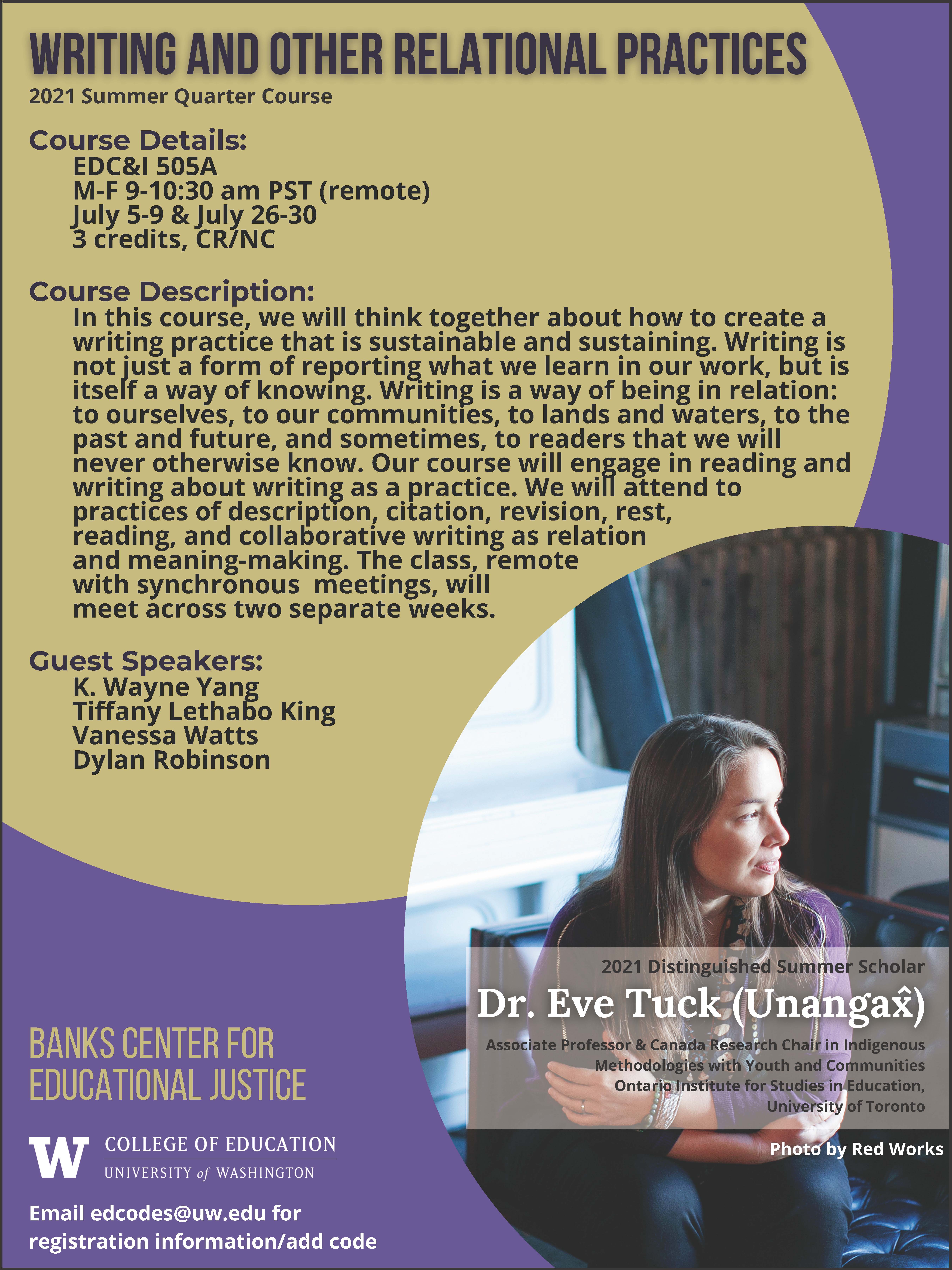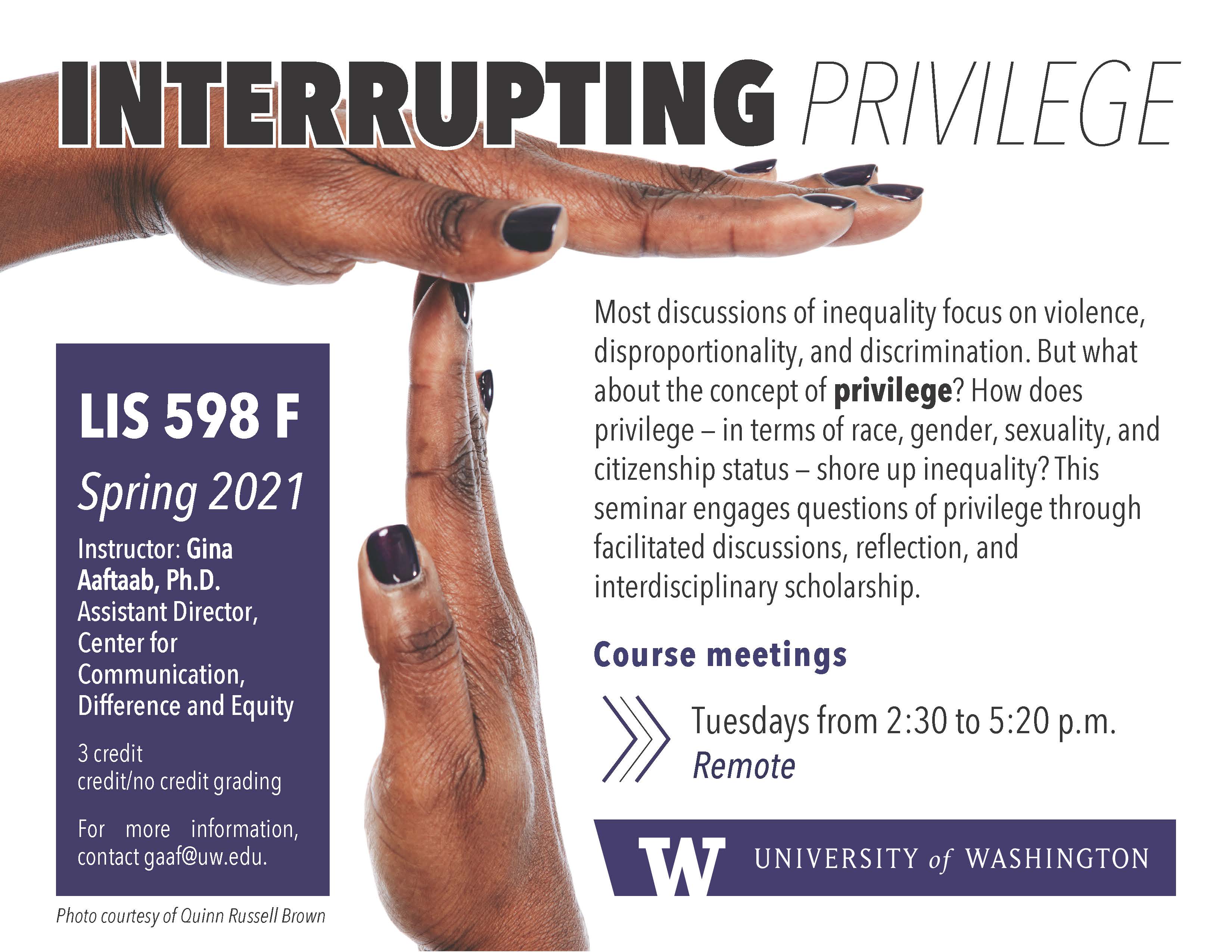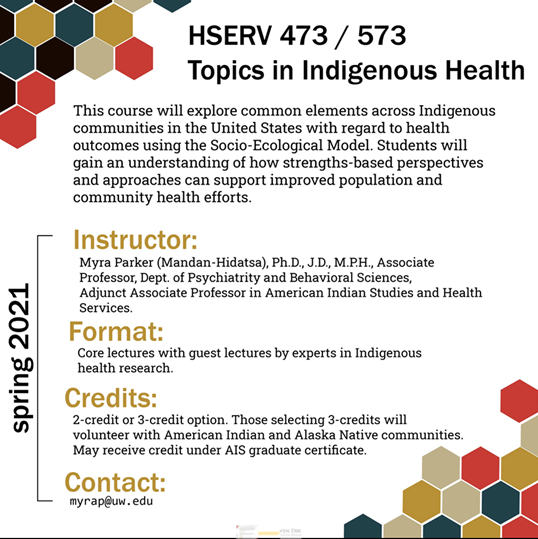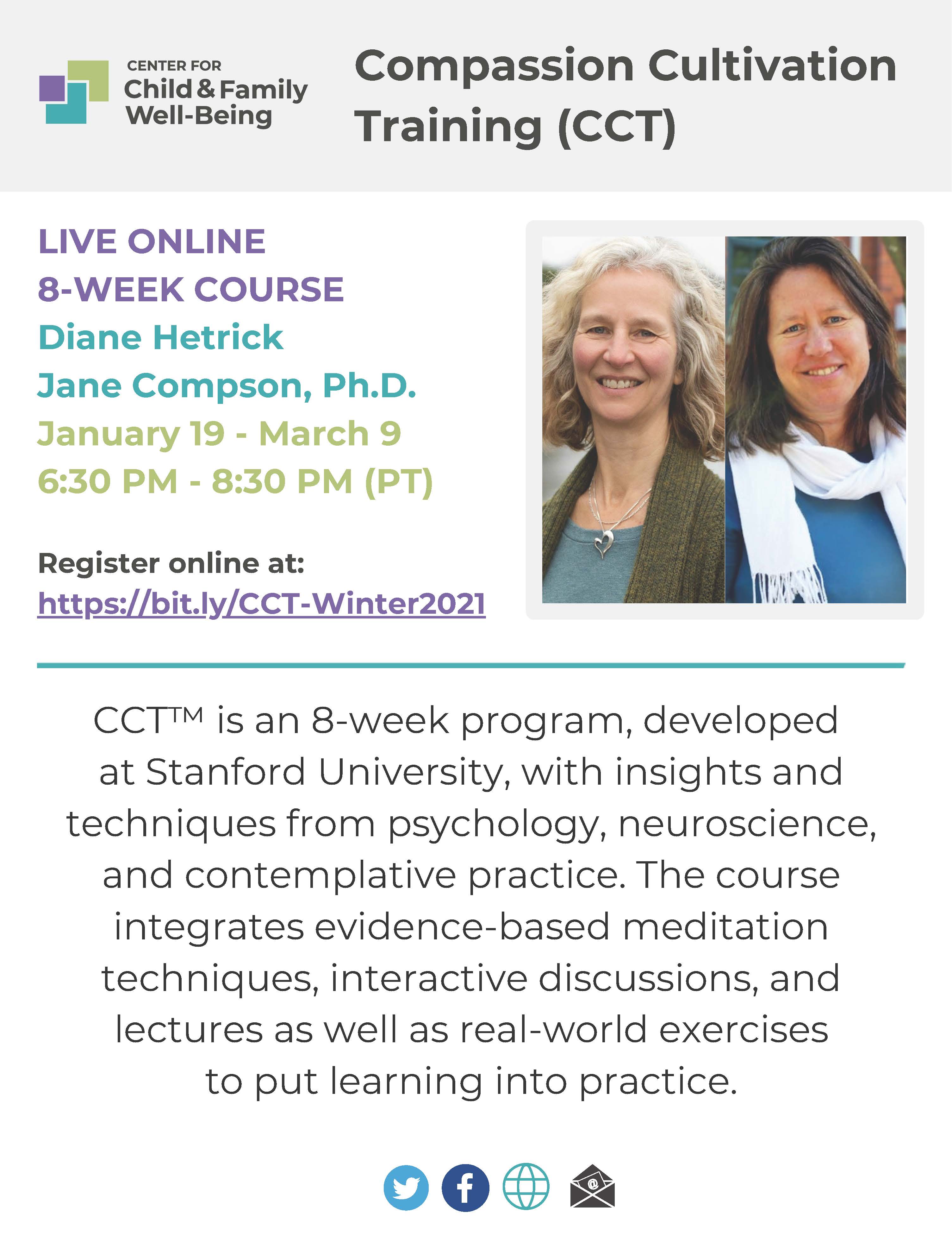SSW MSW Blog

BCULST 592 Topics in Cultural Research: Black Arts North/West- Autumn Quarter Course
Posted under Courses and Registration on Aug 9, 2021
BCULST 592 Topics in Cultural Research: Black Arts North/West (5 credits)
Instructor: Jed Murr
W 5:45 – 10 pm
UW Bothell campus
SLN#22898
This course explores what theorist and poet Fred Moten calls the “autonomous aesthetic thrust of Black radicalism” as it has taken shape in multiple formations on the West Coast of the U.S. and in the Pacific Northwest from the 1960s to the present. Drawing on interdisciplinary scholarship that situates African American and Black diasporic life and politics on the West Coast in comparative and transnational frames, we will work to (1) collectively investigate this new body of scholarship with a specific focus on the Pacific Northwest; (2) generate place-based research and critical and creative writing about local political and aesthetic movements; and (3) engage together recent Black Digital Humanities projects as examples of public-facing, accountable, participatory, and accessible scholarship.
Students will be asked to attend–in-person or virtually–and write about local arts events, such as Barbara Earl Thomas’s The Geography of Innocence and upcoming exhibits at Wa Na Ri. We will also work together to build and curate two online archives, one focused on Black periodicals in the PNW and one on contemporary Black art practices. And we will interrogate the stakes of doing cultural studies work in a time of revolt against racial capitalism and its violences.
Questions? Contact Jed Murr, jmurr@uw.edu
Interprofessional Advocacy for the Health Professions – Fall Quarter Course
Posted under Courses and Registration on Jun 6, 2021
Open to all students in the 13 graduate Health Sciences professional programs, in the schools of Nursing, Public Health, Social Work, Pharmacy, Medicine, and Dentistry!
Sign up now for Introduction to Advocacy for the Health Professions – UCONJ 646!
- Learn from advocacy and topic specific experts about fundamental elements of health advocacy.
- Develop hands-on skills for moving beyond witnessing health disparities to upstream action rooted in community-centered advocacy.
- See flyer for details (attached and copied below)
Course details:
- Fall quarter 2021
- One Credit, CR/NC
- Wednesdays 5:30-7:30pm
- Online only
Contact Leonora Clarke at clarkel@uw.ed for an add code or with questions!
(dis)Ability, Education, and the Arts – Summer Quarter Course
Posted under Courses and Registration on May 31, 2021
EDSPE 422 (dis)Ability, Education, and the Arts
5 CR, VLPA, DIV
Full-term, 100% online, asynchronous
**Also offered in Autumn quarter**
Resettlement and Camp Infrastructure – Summer Quarter Course
Posted under Courses and Registration on May 16, 2021
IPM 598: Special Topics: Resettlement and Camp Infrastructure
https://www.washington.edu/students/timeschd/SUM2021/95ipm.html
Offered as a blended course.(synchronous and asynchronous) on Mondays 4:30 pm to 5:20 pm
Credits: 1 credit cr/nc
Instructor: Lan Nguyen
For more details on course content, email lan8@uw.edu
Registration Instructions: State Students must register by calling PCE registration at 206-543-2310. This is a fee based program course. Tuition is NOT included in your tuition cap.
This graduate level urban planning based course is designed to familiarize students with the social, political and economic processes that produce vulnerability and induce migration which is increasing across the globe.
“We are facing the biggest refugee and displacement crisis of our time. Above all, this is not just a crisis of numbers; it is also a crisis of solidarity.” – Ban Ki Moon, United National Secretary General.
Students will learn about prototypes for construction and maintenance of critical and social infrastructure in temporary settlements. Given that the topic is vast, the course is a survey of the types of temporary settlements that are created largely as a response to climate change, geohazards, violence and pandemics.
LIS 598 F: Interrupting Privilege- Spring 2021 Course
Posted under Courses and Registration on Mar 22, 2021
Tuesdays, 2:30pm-5:20pm, offered remotely, 3 cr/nc
For more details, email gaaf@uw.edu
EDC&I 505A: Writing and Other Relational Practices- Summer 2021 Course
Posted under Courses and Registration on Mar 22, 2021
Monday-Friday 9-10:30 am PST (remote), July 5-9 & July 26-30, 3 credits, CR/NC
Course Description:
In this course, we will think together about how to create a writing practice that is sustainable and sustaining. Writing is not just a form of reporting what we learn in our work, but is itself a way of knowing. Writing is a way of being in relation: to ourselves, to our communities, to lands and waters, to the past and future, and sometimes, to readers that we will never otherwise know. Our course will engage in reading and writing about writing as a practice. We will attend to practices of description, citation, revision, rest, reading, and collaborative writing as relation and meaning-making. The class, remote with synchronous meetings, will meet across two separate weeks.
Interested students should email edcodes@uw.edu for registration information.

NUTR 514: SUSTAINABLE FOOD SYSTEMS FOR POPULATION HEALTH- Spring 2021 Course
Posted under Courses and Registration on Feb 28, 2021
T/Th, 11:30am-12:50pm (T session is asynchronous; Th session is synchronous), offered remotely, 3 credits; SLN: 17905
This new course uses food systems as a lens for viewing and understanding population health principles.
Students will:
- be introduced to the connections between food systems and population health, including issues related to the determinants of health, food production and supply chains, food access and environments, and the bidirectional relationship between dietary intake and food systems;
- learn how food systems in the US and in global settings have changed over time and the evolution of public health approaches to food systems;
- use the tools of systems thinking to examine food systems, including an assessment of various stakeholders, their priorities, and dynamic interactions within the system;
- learn the multifaceted nature of sustainability as it relates to food systems, including the intersections between food systems and sustainability, resilience, equity, and justice;
- understand roles and opportunities for different public health disciplines and practitioners in in shaping the food system.
Open to all graduate and professional students.
The instructor is Marie Spiker, PhD, MSPH, RDN, Assistant Professor in the Nutritional Sciences Program and the Department of Epidemiology.
GEOG 581/HSERV 585: Space, Place, Health and Disease: The Geography of the Opioid Epidemic(s) in America- Spring 2021 Course
Posted under Courses and Registration on Feb 18, 2021
Space, Place, Health and Disease: The Geography of the Opioid Epidemic(s) in America (5 credits)
Tuesday and Thursdays 1:00 to 2:30 Remote Seminar via Zoom
Suzanne Withers (Geography) & Jonathan D Mayer (Geography & Epidemiology)
This graduate research seminar explores the geography of the opioid epidemic(s) in the United States. The course begins with the geography and epidemiology of pain (chronic through acute), and journeys through the production of prescription opioids, the geography of prescribing, the politics of monitoring, and the epidemiology of prescribing practices. The journey continues by exploring spatial patterns of overdose, death, and dying, the geography of illicit drugs and public health responses to overdose, and the accessibility of treatment for opioid use disorder. Students gain a rich understanding of the importance of place and space from this close study of the opioid epidemic(s).
In parallel, this course provides students with advanced training in GIS for geospatial health research. Analytical techniques such as mapping uncertainty, web mapping, proximity analysis, patterns and hot spot analysis, spatial/temporal analysis, colocation analysis, geographically weighted regression, and Bayesian smoothing techniques for rate stabilization are reviewed using hands-on exercises, primarily with ArcGIS Pro. Prior GIS training is advantageous, but not essential. Students gain a rich understanding of the geospatial techniques frequently applied in spatial health research.
For more information please contact Suzanne (swithers@uw.edu) or Jonathan (jonathan.d.mayer@gmail.com).
HSERV 573 Topics in Indigenous Health (2 or 3 Credits)- Spring 2021 Course
Posted under Courses and Registration on Feb 12, 2021
Mondays + Wednesdays, 3:00pm-3:50pm, offered remotely**, SLN: 21316
This 2 or 3 credit course covers the fundamentals of Indigenous health, including Indigenous conceptual frameworks specific to health, wellness, and resilience. Topics include Indigenous social determinants of health, Federal Indian health policy, and American Indian and Alaska Native trends in population health outcomes within the context of the socio-ecological model.
**Students can opt for 2 or 3 credits. If students register for 3 credits, they commit to a volunteer component with local and regional AIAN tribes and urban Indian organizations for 2 hours per week (a total of 10 hours).
Evans School of Public Policy & Governance Winter 2021 Courses
Posted under Courses and Registration on Jan 7, 2021
The Evans School of Public Policy & Governance is offering a new 4-credit topics course in winter quarter, PUBPOL 537 A: Development Policy and Politics (SLN 22186) with Professor Stephen Kosack. The course meets on Tuesdays from 2:30-5:20pm. Please see the attached flyer for additional information that can be shared with students who may be interested in the course
Other elective courses at the Evans School with space available include:
– PUBPOL 504: Leadership Ethics in the Public Interest
– PUBPOL 520: Intergovernmental Relations
– PUBPOL 541: The Role of Nongovernmental Organizations in International Development
– PUBPOL 555: Funding the Social Sector
– PUPBOL 578: Asset Building for Low Income Families
– PUBPOL 598 A /B /C: Professional Skills Workshops (1-credit, see Time Schedule for topics)
Compassion Cultivation Training Course with UW CCFW
Posted under Career information and Professional Development Opportunities, Courses and Registration on Jan 3, 2021
Registration link: https://bit.ly/CCT-Winter2021
MEDEX 580 Homelessness in Seattle- Winter 2021 Course
Posted under Courses and Registration on Dec 21, 2020
Tuesdays, 6:00pm-7:50pm, offered remotely; SLN 21778
Homeless in Seattle is a multidisciplinary course developing knowledge and skills in service delivery to people experiencing homelessness. This course offers the opportunity to hear from providers who have specialized in different fields. Students will do readings, have lectures, do active learning, and participate in a group project and presentation on a social justice issue.
Course Questions? Contact loist@uw.edu
Registration Questions? Contact abatts@uw.edu
JSIS 539B: US Foreign Policy & International Engagement- Winter 2021 Course
Posted under Courses and Registration on Dec 6, 2020
Tuesdays, 11:30am-2:20pm, offered remotely, 5 credits; SLN: 16027
This course explores how the U.S. Executive Branch formulates and implements foreign and security policy. Taught by a former Ambassador with extensive experience in Europe and NATO, the class takes a practitioner’s approach to examine the actual conduct of foreign affairs, from defining the national interest to medium-term planning and day-to-day international engagement. Using case studies from the recent past, the course will examine how the U.S. advances the national agenda using military, diplomatic, assistance and other means. Students will refine their analytical and presentation skills through a series of short briefings on breaking developments and concise policy memos addressed to decision-makers.
Email maais@uw.edu for more information.
NSG 511 Prevention Issues in Community Health- Winter 2021 Course
Posted under Courses and Registration on Nov 30, 2020
Wednesdays (Even numbered weeks), 2:30pm-5:20pm, 3 credits; SLN: 18234
An interdisciplinary overview of community health prevention approaches focusing on the social determinants of health and health disparity reduction among vulnerable populations. Analysis of community and population preventive strategies across the life course. Roles of advanced community health nurses as prevention leaders and consumers of prevention information are emphasized.
COURSE OBJECTIVES
1. Understand the philosophy and value orientation of prevention frameworks used in community health
2. Examine prevention approaches for individuals and communities, including behavioral, educational, economic, environmental and capacity building strategies
3. Analyze the contribution of research to the theory development, intervention selection and intervention methodology of community health programs
4. Evaluate community health prevention research
NSG 556 Program Planning and Health Systems and Multicultural Communities- Winter 2021 Course
Posted under Courses and Registration on Nov 30, 2020
Wednesdays (Odd numbered weeks), 2:30pm-6:20pm, 4 credits; SLN: 18240
Explores culture as it related to the program planning process, methods , theories, attitudes, and skills in health promotion and disease prevention through community engagement.
COURSE OBJECTIVES
1. Describe the modifications of traditional community health practice that must be made to plan programs across cultures.
2. Articulate and demonstrate attitudes and values most constructive for program planning with multicultural populations;
3. Compare and contrast models of community engagement with an emphasis on community-based participatory approaches with multicultural populations;
4. Discuss and demonstrate an understanding of the key components of program planning in health promotion and disease prevention with multicultural populations;
5. Analyze culturally appropriate community intervention programs to identify key components and activities;
6. Analyze approaches needed to translate theory and research into transculturally appropriate interventions;
7. Identify challenges in program planning with multicultural populations (e.g. availability of epidemiology data, racial misclassification, cultural differences in patterns of communication related to work in planning teams. cultural orientation/values related to implementation design, and cultural differences in evaluation design) and actions that may be helpful to address the challenges.
8. Demonstrate an understanding of attitudes, values, and skills relevant to cross cultural health promotion projects.
HSERV 581: Strategies of Health Promotion- Winter 2021 Course
Posted under Courses and Registration on Nov 28, 2020
Tuesdays + Thursdays, 1:30pm-3:20pm, offered remotely; SLN: 15469
This course focuses on (a) designing, implementing, and evaluating health promotion interventions and (b) health behavior change theories.
By the end of this course, you will be able to:
– Apply a 10-question process to the development of health promotion interventions;
– Describe and apply several theories relevant to health behavior change;
– Discuss health promotion interventions at each level of the socio-ecological model;
– Design a health promotion intervention and present it as a grant proposal;
– Access and use a variety of resources to inform health promotion efforts.
All graduate students welcome! Public Health students should complete HSERV 511 or PHI 511 prior to taking this course.
HSERV 511B: Introduction to Health Services & Public- Winter 2021
Posted under Courses and Registration on Nov 22, 2020
HSERV 511B – Introduction to Health Services & Public Health
Mondays and Wednesdays, 1:00pm-2:20pm; 3 Credits; SLN: 15454
This course provides an overview of the U.S. health care and public health systems, covering: 1) the many factors affecting the population’s need, demand, and utilization of health care services, 2) how health care is financed, organized and regulated; 3) the history, goals, and changing role of public health; and 4) the efficiency, effectiveness and equity of the health system. The course explores the role of the private sector and of government in the financing, provision, and regulation of health services, and in the protection of the health of the population.
NMETH 594A: Innovations in Health Service Delivery- Winter 2021
Posted under Courses and Registration on Nov 16, 2020
WIN 2021/ Thurs 8:30-10:30am (remote), SLN 18204 (3 credits)
Students will gain a broad overview of T3/T4 research focusing on translation of effective interventions into practice and the community. Innovations in health services research will be reviewed including frameworks, appropriate study designs, methods, modalities, strategies and tools (formative, implementation, dissemination and communication). Prerequisite: Graduate level standing
GRDSCH 525 Acting Up: Teaching Theater for Change- Winter 2021
Posted under Courses and Registration on Nov 16, 2020
Tuesdays/Thursdays (11:30-1:50), 3 credits, C/NC
How do you interrupt bias in classrooms so that all students thrive? One evidence-based answer: by building practical skills in Theatre of the Oppressed, social change theater, and other arts-based pedagogies. These practical skills serve students from all fields, no matter what their professional goals.
In this online course, students practice using the language and methods of theater to challenge institutional oppression and advance community dialogue about power and privilege. These methods generate opportunities for collective problem-solving. The course culminates in an online student-generated theater performance and dialogue.
Co-instructors: Tikka Sears and Elba Moise
To see a full list of courses offered this year, please visit our CTL Graduate School Courses page.
Legal Foundations of World Order – Autumn Quarter Course
Posted under Courses and Registration on Oct 1, 2020
JSIS 534: Legal Foundations of World Order
5 redits
Monday and Wednesdays 3:30-5:20pm
Professor Rick Lorenz
This course examines the legal foundations of world security and stability in a time of dynamic change in international relations. Some believe that international law is a charade; governments comply with it only when convenient to do so, and disregard it whenever a contrary interest appears. But legal “norms” can still have a major impact on a wide range of economic, political and security matters. Topics will include the Just War Theory, International Humanitarian Law (the Law of Armed Conflict) and its application to modern warfare, humanitarian intervention, terrorism, nuclear weapons, suicide bombers and robotic warfare, international environmental law, climate change and the Law of the Sea.


